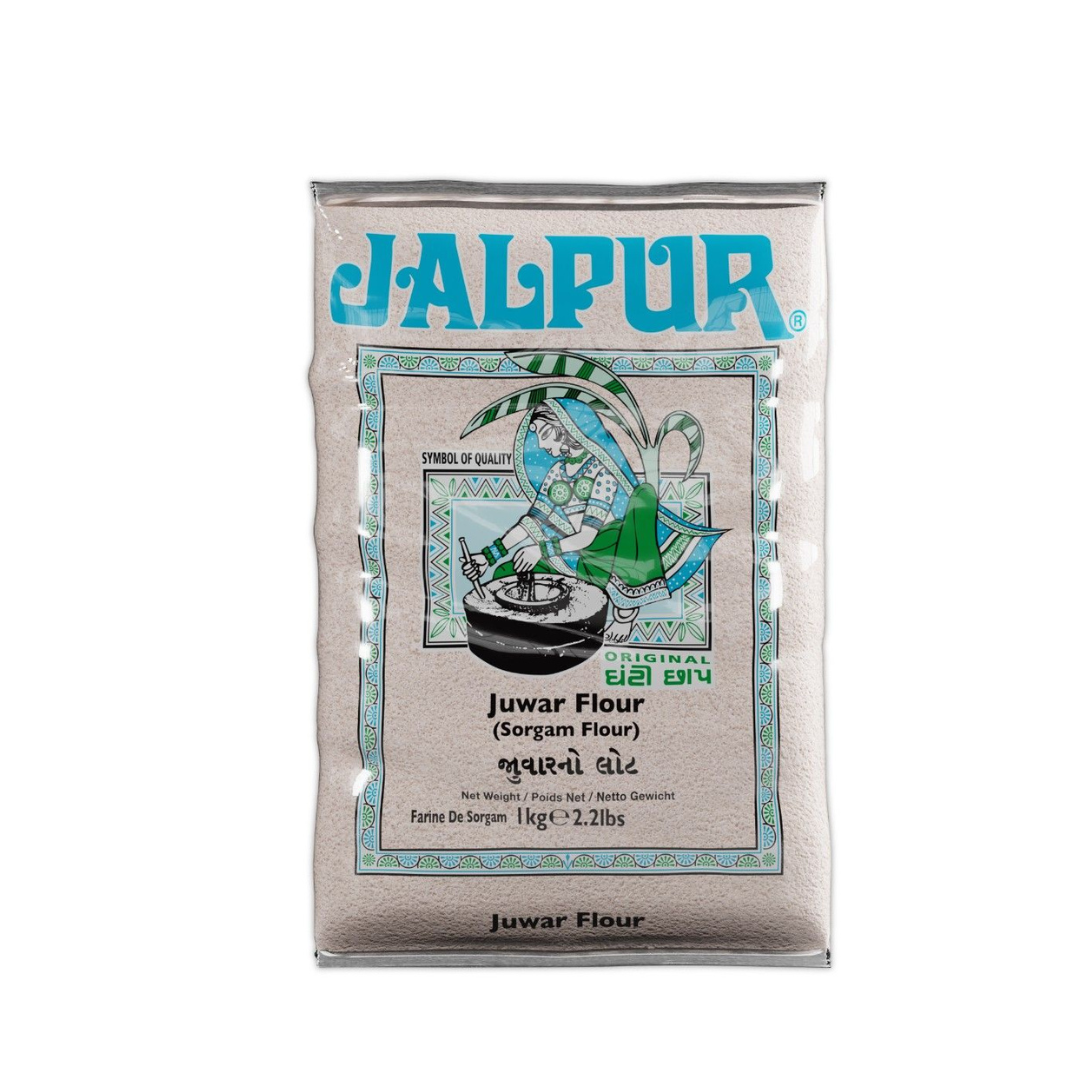Description
-
The 1kg pack of Jalpur Juwar Sorgam Flour contains ground Juwar, also known as Sorghum. Sorghum is a gluten-free grain that is a staple in many parts of the world, including India and Africa. In India, it's commonly known as Jowar.
Characteristics of Juwar (Sorghum) Flour:
- Gluten-Free: Naturally free from gluten, making it suitable for those with gluten intolerance or celiac disease.
- Nutrient-Rich: It's a good source of fiber, carbohydrates, protein, and essential minerals like iron, magnesium, phosphorus, and potassium. It also contains B vitamins and antioxidants.
- Mild and Slightly Sweet Flavor: Jowar flour has a subtle, slightly sweet, and earthy flavor.
- Slightly Coarse Texture: Similar to other millet flours, it can have a slightly coarser texture compared to wheat flour.
- Good for Digestion: The high fiber content aids in digestion and promotes gut health.
- Energy Source: Being rich in complex carbohydrates, it provides sustained energy.
Culinary Uses:
Jalpur Juwar Sorgam Flour is versatile and can be used in various dishes:
- Bhakri/Roti: It's traditionally used to make flatbreads like Bhakri in Maharashtra and Rotla in Gujarat. These are often eaten with vegetables, lentils, or curries.
- Thalipeeth: A savory multi-grain flatbread where Jowar flour is often a primary ingredient.
- Upma: It can be used to prepare a savory dish similar to semolina upma.
- Idli and Dosa: Jowar flour can be combined with other flours to make gluten-free versions of idli and dosa.
- Porridge (Khichdi): It can be cooked with lentils and vegetables to make a nutritious porridge.
- Baking: While it lacks gluten, it can be used in combination with other gluten-free flours and binding agents to make bread, muffins, and cakes. It can also add a unique texture to cookies.
- Thickening Agent: It can be used to thicken soups and sauces.
- Coating: Some use it to coat vegetables or meats for a crispy exterior when frying.



